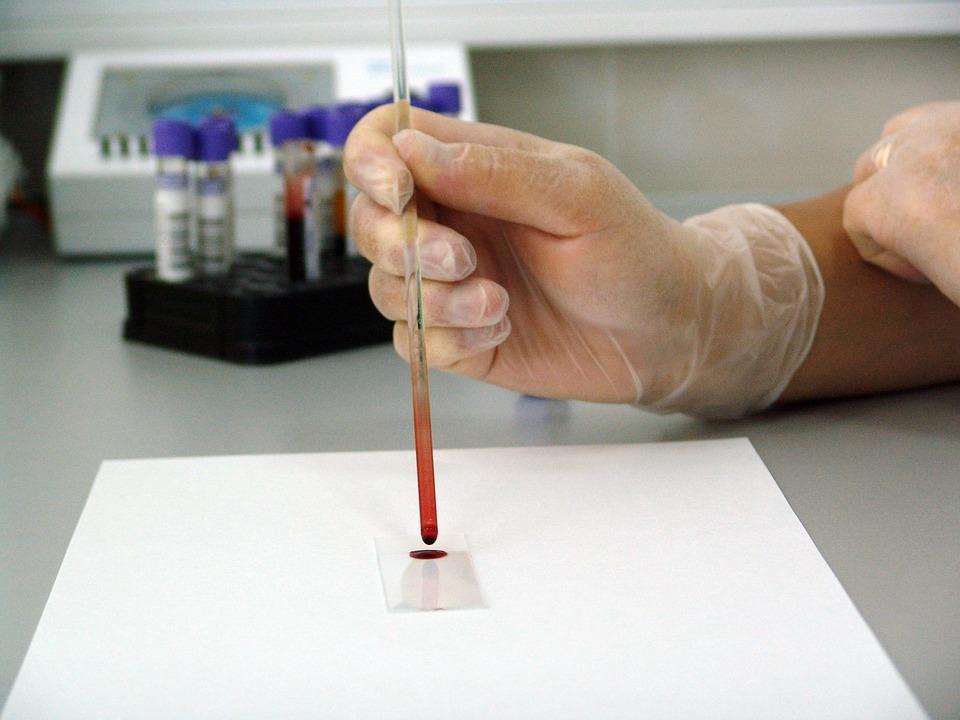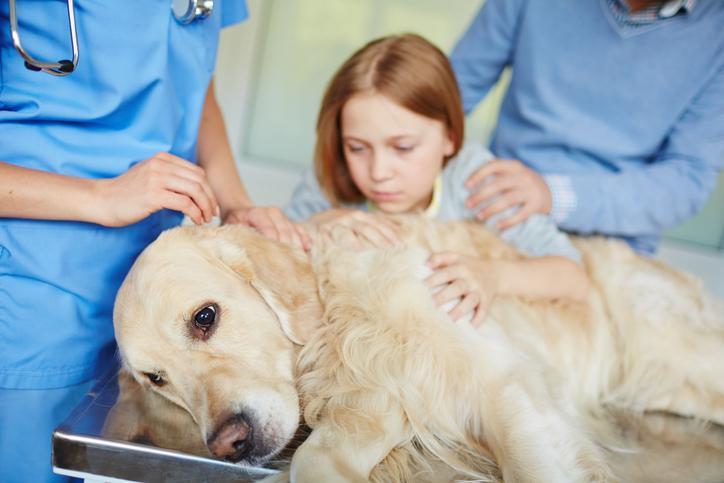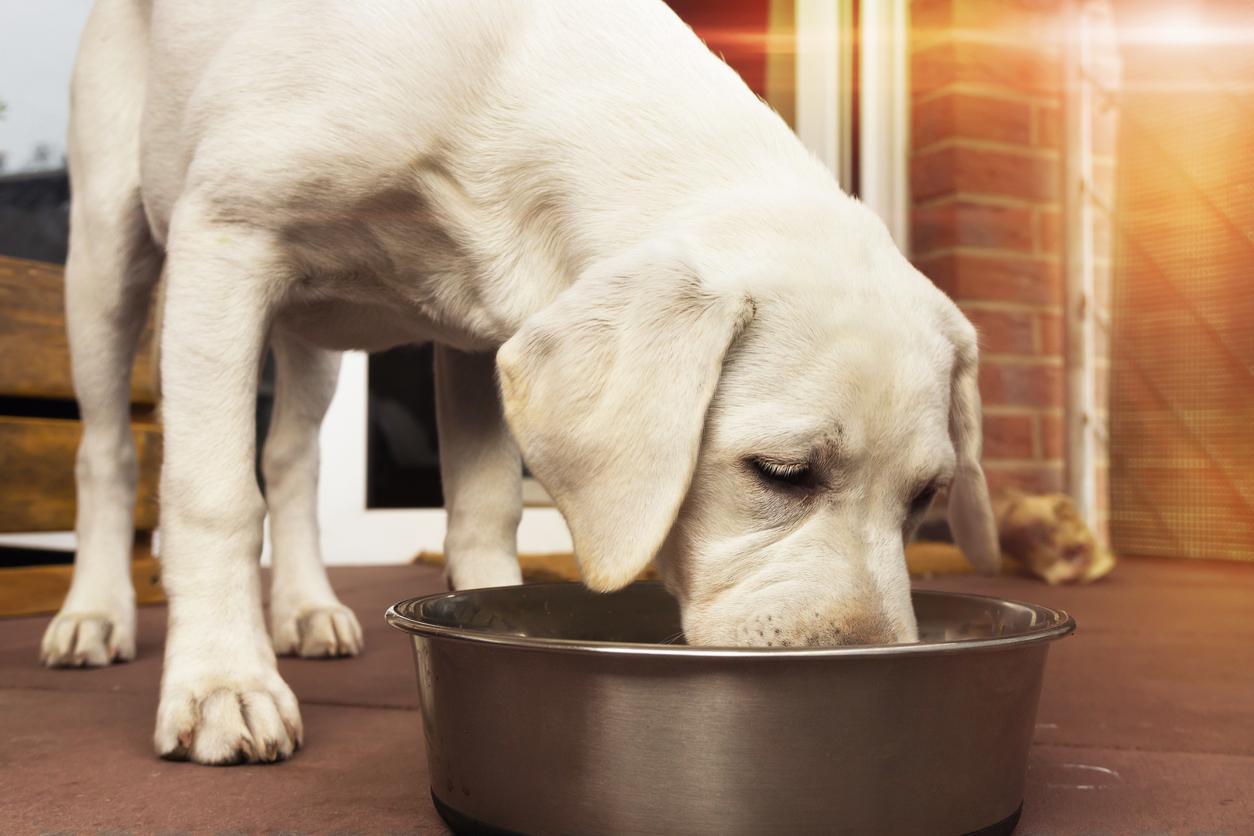High Creatinine Levels in Dogs

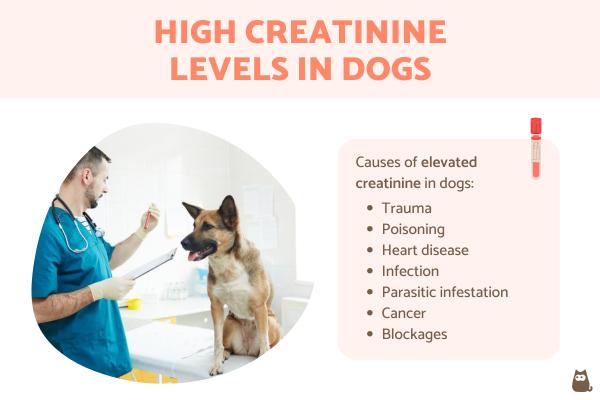

See files for Dogs
Creatinine is a byproduct of protein metabolism in the muscles and it is eventually filtered out by the kidneys. This means that elevated creatinine levels in a dog are either a result of increased production or a problem in its elimination which leads to a build up. The causes of these elevated creatinine levels are varied and can be influenced by factors such as age, health status and even the amount of exercise the individual dog receives. While you may observe some symptoms of elevated creatinine levels, confirming them requires a blood test carried out by a veterinarian.
At AnimalWised, we help you to understand what high creatinine levels in dogs mean. We do so by looking at the causes and symptoms of elevated creatinine in dogs, as well as what can be done to bring them down to a normal range.
How creatinine levels in dogs are related to kidney function
Creatinine is a waste product which is created by the breakdown of creatine phosphate (also known as phosphocreatine) from muscle tissue. It is not particularly useful in itself. As a waste product, it is processed by the kidneys and excreted via urine. For this reason, it is useful in diagnosing kidney function. If the kidneys are functioning properly, there should be a normal level of creatinine in both the urine and blood. When the levels are too high, it implies the kidneys are unable to process the creatinine adequately.
If a dog has high levels of creatinine in their blood or urine, it is a sign of kidney failure in dogs. The causes of kidney failure can be various. Age is an important factor in vital organ functionality. As the dog gets older, it is common for organs to function to a lesser degree, but a disease, disorder, infection or even trauma can lead to renal failure.
Unfortunately, even if the dog's renal system has been deteriorated, it can still function well for a long time. This means damage to your dog may be occurring, even if there are no obvious physical symptoms or behavioral changes. Taking your dog to the vet for a regular checkup is imperative, especially if the dog is a senior dog over 7 years of age. The veterinarian will test the dog's creatinine levels for this reason.
Recognizing an elevated creatinine level in your dog is a good way of testing glomerular filtration rate (GFR) of the kidney. This is the rate at which the kidney is able to process waste products via bloodflow. Serum is part of the blood and is measured for creatinine levels in dogs. It is used as an effective test for kidney function in dogs as whatever the cause of renal failure, creatinine levels will be raised[1].
Just because a dog has elevated creatinine levels, does not necessarily mean there is kidney failure. There are other factors which may affect the accuracy of test results. For this reason, the tests for GFR need to also assess other factors such as the level of urea and phosphorous. The reason why creatinine levels are measured is that they use a relatively simple methodology and equipment. For a more accurate reading, a few samples may be taken over a period of 10 hours or so[2]. There have also been recent developments to suggest that a canine saliva test will also be able to determine inappropriate levels of urea and creatinine[3].

Causes of high creatinine in dogs
If a dog has high creatinine in their blood serum, urine or even saliva test results, it is because the kidneys are not functioning properly. This means the cause of elevated creatinine levels in dogs is also the cause of kidney damage. These causes may include:
- Trauma: if your dog is in an accident or if someone has purposefully abused them, it is possible their kidneys have received a trauma injury. This can cause internal bleeding, inflammation or other kidney damage which can result in renal failure.
- Poisoning: if a dog ingests something they shouldn't, it can cause physical damage if it is a choking hazard. However, if they eat something poisonous, it means the toxins cannot be processed and they can build up in the liver and kidneys. If the toxins are not flushed out in time, more damage will occur and can result in kidney failure.
- Heart disease: as the kidneys rely on blood flow to adequately process substances, heart disease can indirectly lead to improper kidney function.
- Infection: there are many different types of infection which can lead to the kidneys not functioning properly. Leptospirosis is a bacterial infection which can lead to the shut down of organs. It is also transferable to humans which is why it is included in many vaccination schedules. Other bacterial or viral infections can also lead to kidney failure, but more aggressive types such as parvovirus in dogs will show other symptoms first.
- Parasitic infestation: neosporosis is a parasite which directly damages the kidneys. The tissue is killed and the kidneys can permanently lose function. Age is also a correlated factor in the likelihood of developing this type of infestation[4].
- Cancer: cancer in dogs can metastasize and reach the kidneys resulting in canine renal failure.
- Blockages: blockages in the glomerular capillaries or other parts of the kidney can lead to the kidneys losing function. Kidney stones can also affect the kidney's ability to process chemicals properly.
Symptoms of high creatinine levels in dogs
As elevated creatinine levels is one of the factors vets use to determine the severity of kidney disease, we need to look at the symptoms of renal failure if we haven't yet had a test. There are four main stages of renal failure in dogs, so these symptoms will become more acute as the damage increases:
- Thinning or hair loss
- General poorly appearance
- Increased water intake
- Changes in urination (urinating too much or too little)
- Vomiting
- Diarrhea
- Dehydration
- Breath smelling of ammonia
- Adema
- Comatose state
- Lethargy
- Depression
- Weight loss
- Lack of apetite
- Blood in urine
Even if you see some of these symptoms early on, you should check with your vet. This is because they may show early stages of kidney failure and the earlier the treatment the better the prognosis.
Kidney failure is not the only reason a dog has blood in their urine. Learn about other possible causes with our article on why a dog has blood in their pee.

High creatinine levels in dogs treatment
An elevated creatinine level likely implies an emergency for your dog. In acute cases, the dog will be in danger of fatality. However, since creatinine levels are rarely measured at home, it is likely you are already in the presence of a veterinarian. If so, they will be able to explain what measures they will be able to take in treating the kidney problem and trying to lower creatinine levels. These may include:
- Fluid therapy: as the dog will have lost a lot of its water retention, it will become dehydrated and will need their fluids replaced.
- Treating the cause: if the dog is suffering from one of the above causes of high creatinine levels, then the treatment of this cause will help lower levels. For example, if the kidney has ruptured, surgical intervention may be required.
- Drugs: there are no drugs which can directly lower creatinine levels in the blood. However, there are drugs which can be used to treat the concurrent symptoms while the cause is being reduced.
These measures are used more as a way to stop the progress of kidney disease and to ensure as much kidney function can be saved. In more acute cases, the dog may recover, but there may have been acute kidney damage. If this is the case, then the dog will be left with chronic kidney disease.
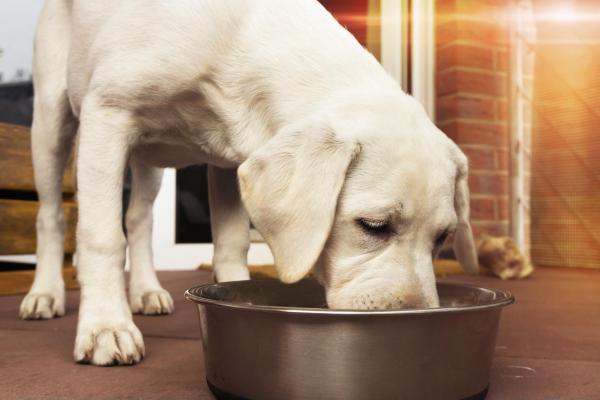
Caring for a dog with kidney disease
Dogs with chronic kidney disease will have elevated creatinine levels, but they shouldn't be as high when the kidney disease was acute. Treatment of this condition is more to do with managing the levels of creatinine as well as phosphorous and urea. Keeping these at the lowest levels possible will help the kidneys to carry out their other functions, but it is important to know they will never return to their previous functionality.
The veterinarian will diagnose the problem through a series of tests. This will include the aforementioned blood test and urinalysis, but they may wish to carry out additional tests such as radiography or an ultrasound. Finding out their other vital signs such as blood pressure levels will help to know the extent of the problem. If the kidney disease has progressed far enough, pharmacological treatment may be required to keep their kidney function going.
Additionally, dogs will likely need to be put on to a special feed formulated for dogs with kidney problems. Their general well-being needs to be taken care of, so they will need to stay well-hydrated and we need to be extra sensitive to possible changes in well-being or if symptoms of acute renal failure reappear.
This article is purely informative. AnimalWised does not have the authority to prescribe any veterinary treatment or create a diagnosis. We invite you to take your pet to the veterinarian if they are suffering from any condition or pain.
If you want to read similar articles to High Creatinine Levels in Dogs, we recommend you visit our Other health problems category.
1. Braun, J. P., Lefebvre, H. P., & Watson, A. D. (2003). Creatinine in the dog: a review. Veterinary clinical pathology, 32(4), 162–179.
https://doi.org/10.1111/j.1939-165x.2003.tb00332.x
2. Moyle, P. S., Specht, A., & Hill, R. (2018). Effect of common storage temperatures and container types on urine protein : creatinine ratios in urine samples of proteinuric dogs. Journal of veterinary internal medicine, 32(5), 1652–1658.
https://doi.org/10.1111/jvim.15232
3. Tvarijonaviciute, A., Pardo-Marin, L., Tecles, F., Carrillo, J. D., Garcia-Martinez, J. D., Bernal, L., Pastor, J., Cerón, J. J., & Martinez-Subiela, S. (2018). Measurement of urea and creatinine in saliva of dogs: a pilot study. BMC veterinary research, 14(1), 223.
https://doi.org/10.1186/s12917-018-1546-5
4. Wang, S., Yao, Z., Zhang, N., Wang, D., Ma, J., Liu, S., Zheng, B., Zhang, B., Liu, K., & Zhang, H. (2016). Serological study of Neospora caninum infection in dogs in central China. Étude sérologique de l'infection par Neospora caninum chez les chiens dans le centre de la Chine. Parasite (Paris, France), 23, 25. https://doi.org/10.1051/parasite/2016025







 i have a dog on renal support food and was told to only give him distilled water. I have a well and there is higher level of iron in it. is it ok to give him the tap water or do I still have to buy distilled water for him.
i have a dog on renal support food and was told to only give him distilled water. I have a well and there is higher level of iron in it. is it ok to give him the tap water or do I still have to buy distilled water for him.

